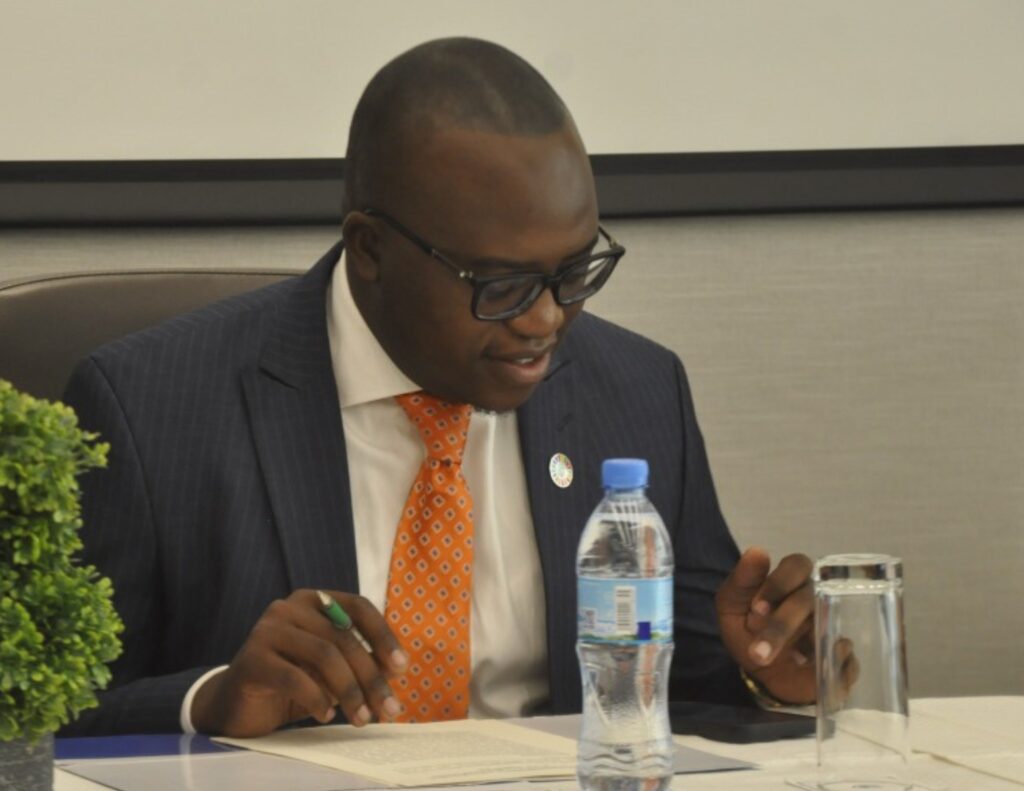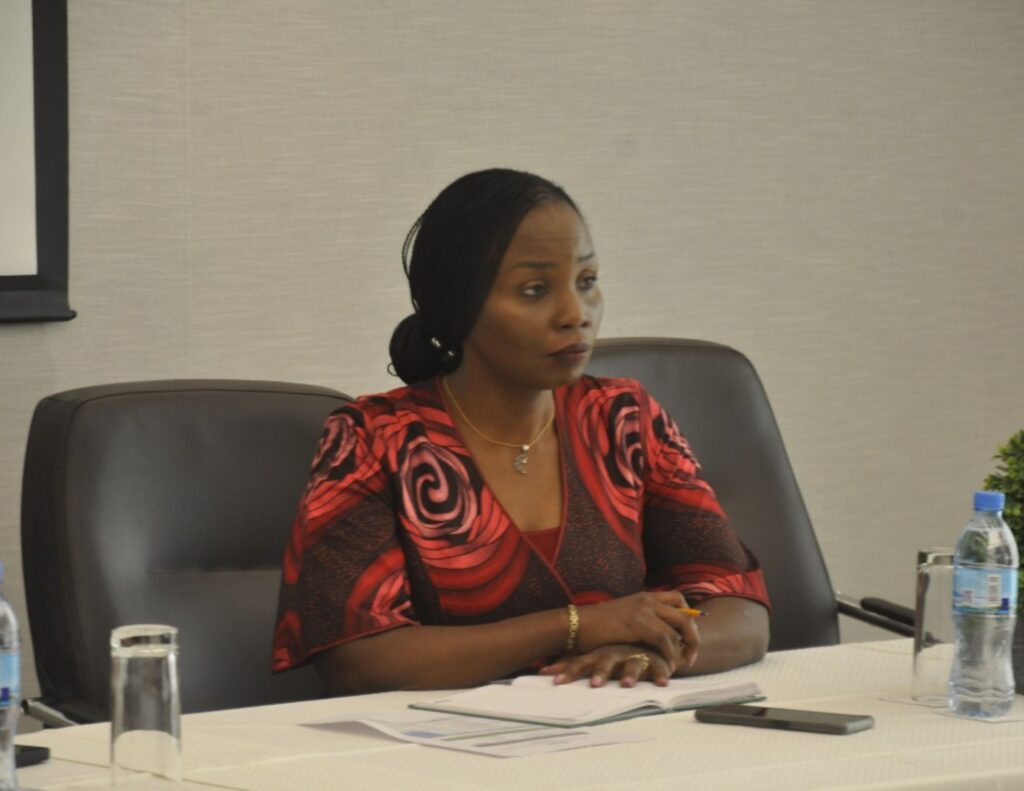Dar es Salaam, 06/Nov/2022
Tanzania’s Deputy Minister for Agriculture, Hon. Anthony Peter Mavunde, has underscored the need for agriculture researchers and scientists in Africa to ensure they are more active in scaling up the adoption and use of agricultural technologies among small-scale farmers. It would solve myriad problems facing smallholder farmers in Tanzania and across the continent.
“I’m asking all agriculture specialists to ensure various technologies and inputs invented to reach the hands of smallholder farmers. Smallholder farmers using technology and innovations from researchers will change the lives of many people in Africa,” he emphasized the specialists to support the continent to enhance agricultural transformation.
The deputy minister was addressing various centres of excellence in improving agriculture productivity in African stakeholders at a two-day meeting in Dar es Salaam, November 2-3, 2022. Present were top-notch crop breeders, agronomy, roots and tubers, and seed systems experts, among others representing their research institutions or centres from Tanzania, Uganda, Kenya, Ghana, South Africa and Nigeria.
“In the face of climate change and other emerging challenges, technology use was essential to enable small-scale farmers to increase productivity;” the deputy Minister told the convention hosted by Alliance for Green Revolution in Africa (AGRA) ‘s Centre of Excellence for Seed Systems in Africa (CESSA).
The convection was part of CESSA activities to improve seed systems in Africa by encouraging partnerships to build small-scale farmers-centric functional seed systems that will lead to higher yield gains in the continent. Research indicates that Sub-Saharan Africa produces lower-than-average yield gains compared to the rest of the world.
Ms Aggie Konde, AGRA vice president for Programme Delivery and Innovation, rooted for a quick solution to the problems afflicting smallholder farmers. She noted that, collectively, African research institutions had experiences of hundreds of years; thus, there should be no more excuses.
“China did it in 6 years, and India did it in 10 years. Tanzania has become self-sufficient in maize. We have economic models to borrow from.” Ms Konde argued researchers had solutions that could solve smallholder farmers’ problems, but there needed to be winnable gameplans to ensure upscaling. Researchers have some varieties in demo plots that can produce 7 tonnes and above per acre. Still, farmers needed help to deliver even 2 tonnes per acre in the varieties they are using.
“Two to six seasons of concrete collaborative efforts can move millions of small-scale farmers from subsistence agriculture, from poverty to assured food sufficiency and wealth,” Ms Konde noted. It needs collaborative efforts by African centres of excellence and the realisation that they are not competitors. Collaboration by African centres of excellence will help to have a significant impact in making farmers lead quality lives as agriculture technology uptake becomes a way of life.
Mr Fahari Marwa, Principal Agricultural Economist EAC Secretariat, told the convection that agriculture and food security cooperation is a priority in the EAC integration process. He underscored EAC can partner with the centre of excellence on critical issues. He mentioned strengthening cooperation in quality seed development and production through regional research and plant breeding programmes, supporting cooperation in establishing gene banks, and enhancing capacity in seed technology. Other collaboration areas include initiating and maintaining strategic seed reserves at the regional level; harmonising policies, legislation and regulations to ease seed trade; creating an enabling environment for private sector seed multiplication and distribution, he noted.
“There is an urgent need for a modernization intervention to revamp public sector breeding programs systems while avoiding duplication, lack of shared learnings, multiple approaches and moving to collaborative and scalable processes and vibrant partnerships,” noted Mr Biswanath Das. He is the coordinator of national agricultural research system (NARS) institutions at the global level for CGIAR Center of Excellence in Breeding, hosted by the International Maize and Wheat Improvement Center (CIMMYT)
He noted that technology uptake, genebanks, market intelligence, and accelerated breeding initiatives are vital to scale-up solutions for downstream smallholder farmers.
Ms Jane Ininda, AGRA Head, Seed Research & Systems Development, noted despite the significant progress made in seed development, some big challenges needed urgent attention. Some obstacles were the uncoordinated efforts of different actors on the ground and the need for evidence-based data to influence the technology options. To address the challenges, AGRA has developed Seed Systems Assessment Tool (SeedSAT), an inclusive diagnostic tool purposed to thoroughly assess where national seed systems stand relative to existing best practices. In due course, it would be made public for diverse actors.
Prof Pangirayi Tongoona, Associate Director of Breeding Programmes at the West Africa Centre for Crop Improvement (WACCI), University of Ghana, called for enhanced collaboration, including interchanging teaching methods, strength and critical skills, which will bring more significant impact on African agricultural sector. He is a professor of plant breeding and genetics.
“We need to have interchanging of resources like teaching materials so that students across the region can benefit and enable practical knowledge to penetrate in the community and directly reach smallholder farmers,” noted Prof Tongoona.
He also called for coordinated joint research in different zones to shift people’s mindsets to catalyze agricultural transformation.
Mr Vianey Rweyendela, AGRA Country Manager for Tanzania, who hosted the convection, assured that the ideas fronted on enhancing partnership and collaboration to increase the delivery of technologies, tools and services uptake for smallholder farmers were essential and would be addressed.
Attending the convention were representatives of the East African Community (EAC), the International Institute of Tropical Agriculture (IITA), the West Africa Centre for Crop Improvement (WACCI), Agri Experience, International Centre for Tropical Agriculture – CIAT, the African Agriculture Technology Foundation (AATF), International Rice Research Institute (IRRI), MaRCCI (Makerere University Regional Centre for Crop Improvement), The Association for Strengthening Agricultural Research in Eastern and Central Africa (ASAREC), African Centre for Crop Improvement – ACCI (University of KwaZulu Natal – UKZN), International Potato Centre (CIP), KILIMO KWANZA, International Maize and Wheat Improvement Centre – CIMMYT, AGRA, Tanzania Official Seed Certification Institute (TOSCI) among others.
AGRA and Center of Excellence for Seed Systems in Africa (CESSA)
AGRA is a farmer-centered, African-led, and partnerships-driven institution that is transforming Africa’s smallholder farming. Seed is one of the key pillars for achieving agricultural transformation, hence its strategic position in AGRA’s strategy. This partly explains why AGRA is hosting the Center of Excellence for Seed Systems in Africa (CESSA), designed around three key flagship programs to support seed systems development in Africa. These are: Analysis and Knowledge Resources; Catalytic Grants and AGRA Advisory Services; Capacity Building and Technical Support
Given that several Centers of Excellence are working on various components of agriculture, knowing what each is doing, on what, where and with who, will go a long way in helping achieve results better and faster. Partnership and leveraging are essential in what one does.
Against this backdrop, AGRA organized the forum for the various relevant Centers of Excellence (CoE) and key partners to learn from each other, enhance partnership and collaboration, and enhance the delivery of technologies, tools and services.


